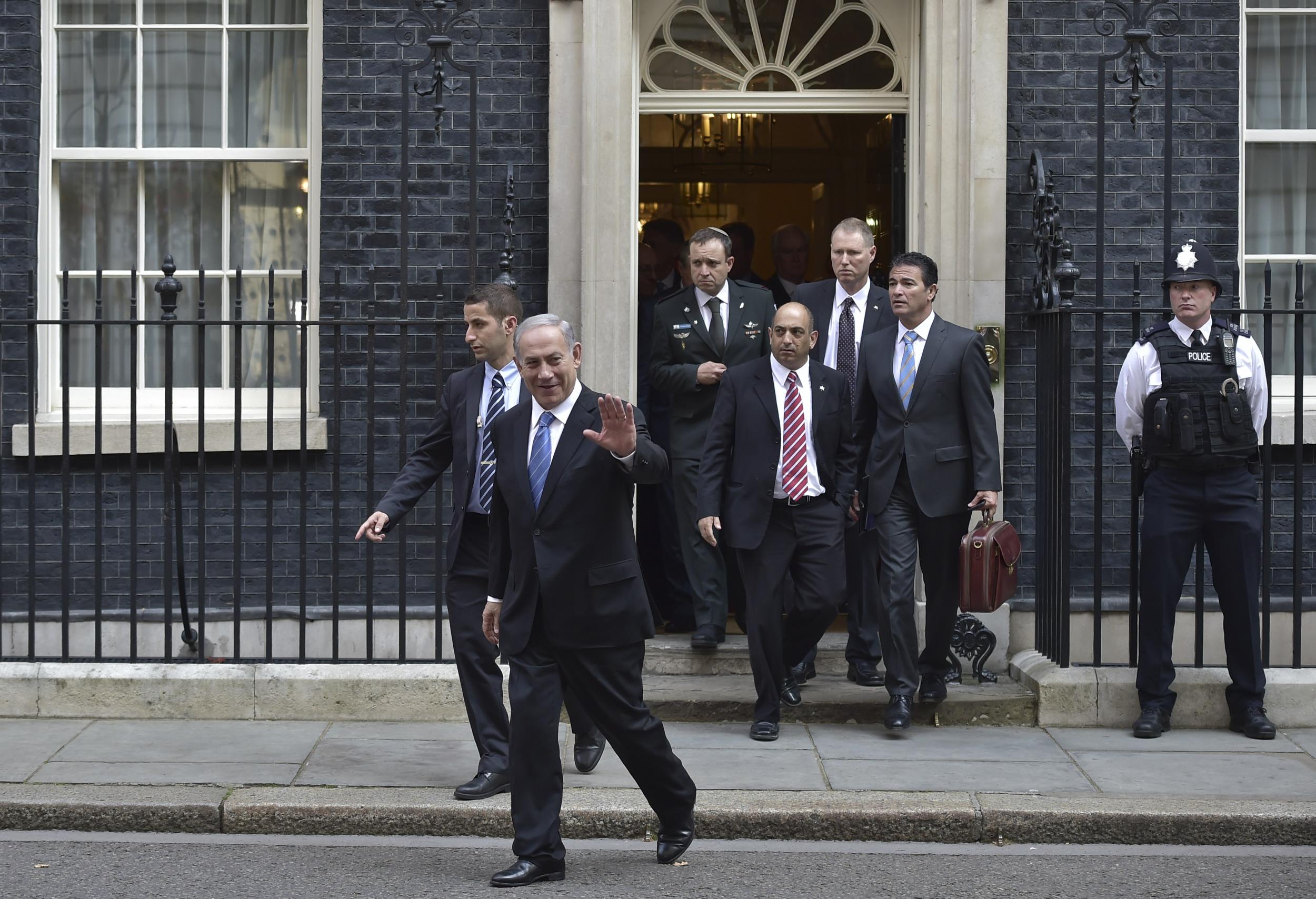Israeli Prime Minister Benjamin Netanyahu to visit Theresa May for Downing Street talks
PMs expected to meet in London, before Mr Netanyahu carries on to the United States for meeting with Donald Trump

Your support helps us to tell the story
From reproductive rights to climate change to Big Tech, The Independent is on the ground when the story is developing. Whether it's investigating the financials of Elon Musk's pro-Trump PAC or producing our latest documentary, 'The A Word', which shines a light on the American women fighting for reproductive rights, we know how important it is to parse out the facts from the messaging.
At such a critical moment in US history, we need reporters on the ground. Your donation allows us to keep sending journalists to speak to both sides of the story.
The Independent is trusted by Americans across the entire political spectrum. And unlike many other quality news outlets, we choose not to lock Americans out of our reporting and analysis with paywalls. We believe quality journalism should be available to everyone, paid for by those who can afford it.
Your support makes all the difference.Israel’s Prime Minister Benjamin Netanyahu is expected to meet Theresa May in London next week.
The talks at Downing Street on Monday will be the first time the UK Prime Minister has received Mr Netanyahu since she took office in July.
News of the visit comes just days after uproar over Ms May decision to invite US President Donald Trump to the UK. Mr Netanyahu is expected to carry on to the US, where he has been invited to the White House to meet the President.
Earlier this week, Israel announced plans to build 3,000 new settler homes in the occupied West Bank, just days after Mr Netanyahu's government approved an additional 2,500 homes in the West Bank and hundreds more in east Jerusalem.
On Monday, the Foreign Office issued a statement condemning the expansion initiative.
Minister for the Middle East Tobias Ellwood said: "The announcement of further settlement units in the West Bank is part of a growing trend which we condemn.
"We have consistently been clear that settlements are illegal under international law, and not conducive to peace. This spike in settlement activity undermines trust and makes a two state solution – with an Israel that is safe from terrorism and a Palestinian state that is viable and sovereign - much harder to achieve."
Mr Netanyahu is preparing to fly to London on Sunday, according to Israeli media, and is expected to meet with Ms May on Monday, although neither the British nor Israeli government has yet confirmed the meeting. He is due to visit Washington on 15 February.
The Israeli leader met then Prime Minister David Cameron on a visit to London in 2015, but he has never met Ms May, having cancelled a reception during her only official visit to Israel as Home Secretary, in June 2014, due to a crisis in which three Israeli teenagers were kidnapped and killed.
Arrangements were reportedly made for Ms May and Mr Netanyahu to meet on the sidelines of the annual World Economic Forum summit in Davos, Switzerland between 17 and 20 January, but the Israeli Prime Minister is thought to have cancelled the meeting over the UK’s support for a UN resolution condemning the building of settlements in the occupied Palestinian territories.
Britain was among 14 UN Security Council members to approve the resolution which declared Israeli settlements “illegal”, with British Foreign Minister Boris Johnson later telling parliament the UK was "closely involved" in drafting the resolution, which enraged Israel.
Resolution 2334 states that Israeli settlements have "no legal validity" and are "dangerously imperiling the viability of the two-state solution". In a significant move, the United States abstained from the vote.
The election of Mr Trump, who has promised to be far more supportive of Israel than his predecessor, is believed to have emboldened Mr Netanyahu, and it has been reported that he is now seeking Britain's support for a change in policy against Iran.
Mr Trump derided the Obama administration's nuclear deal with Iran, which Israel has long opposed, during the election campaign, but it is not clear whether he will abandon the deal entirely.
Downing Street declined to comment on the upcoming visit.
Subscribe to Independent Premium to bookmark this article
Want to bookmark your favourite articles and stories to read or reference later? Start your Independent Premium subscription today.
Join our commenting forum
Join thought-provoking conversations, follow other Independent readers and see their replies
Comments